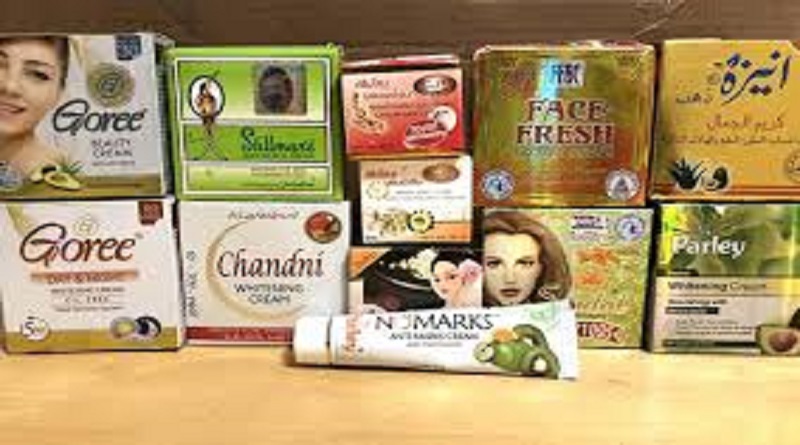Amazon, eBay, Jumia, other websites found selling banned mercury-laced skin lighteners
A new research by a global alliance of Non-Governmental Organisations (NGOs) working to eliminate mercury pollution found that skin lightening creams containing mercury- a heavy metal and dangerous neurotoxin- are still widely available for purchase in shops and online, despite being banned by governments.
Testing throughout 2019, revealed 95 of the 158 products purchased in the 12 sampling countries exceeded the legal limit of 1 ppm (part per million), with mercury levels ranging from 40 ppm to over 130,000 ppm.
More than two-thirds (65 of the 95) of those were bought online from such internet marketers as Amazon , eBay, BidorBuy, Lazada, Daraz, Flipkart and Jumia in Bangladesh, United kingdom, India, Belgium, Kenya, Nigeria, Philippines, South Africa and United States.
Elena Lymberidi-Settimo Project Manager at the European Environmental Bureau and International Co-coordinator of the Zero Mercury Working Group (ZMWG) said: “Mercury is a dangerous neurotoxin which must be effectively controlled. Internet retailers like Amazon and eBay must stop these Illegal products from being sold on their sites, as they have recently pledged to do in the EU.”
In 2018, leading online retailers signed a ‘Product Safety Pledge’ to remove dangerous products. [2]
Many of the same brands were found to contain high mercury levels on several consecutive sampling occasions, in different years, and purchased from both physical shops and via e-commerce platforms. Most were manufactured in Asia, especially in Pakistan (62%), Thailand (19%) and China (13%), according to their packaging.
Products were tested in accredited laboratories in the EU and US and using a hand-held X-ray fluorescence (XRF) spectrometer or analyzer by two regional hubs: CASE in Cote d’Ivoire (for Africa), and Ban Toxics in the Philippines (for Asia). The study did not test products from Latin America. It tested in Africa, Asia, the EU and the USA.
Over 110 countries have committed to the Minamata Convention to phase out and limit mercury, including in cosmetics. A meeting for parties to that convention is being held in Geneva this week.
Michael Bender, Mercury Policy Project Director and ZMWG co-coordinator said: “Despite these illegal high mercury products being essentially banned by governments around the globe, our testing result shows the same products continuing to be sold locally and on the internet. In particular, E-Commerce giants are not above the law and must be held accountable.”
The Zero Mercury Working Group (ZMWG) is an international coalition of more than 110 public interest environmental and health non-governmental organizations from over 55 countries from around the world formed in 2005 by the European Environmental Bureau and the Mercury Policy Project.
To address toxic trade in illegal products, the ZMWG has produced a report to assist authorities in effectively implementing the Minamata Convention. Key proposed enforcement measures include: new laws and regulations, alert systems, international and regional collaboration, inspections, penalties, engagement with online retailers and consumer outreach. The report also presents successful national examples and practices from 8 developing countries.
In Nigeria, values were as high as 2,584 and 20,598ppm of mercury were found in skin lightening products advertised by Jumia and Jiji online mediums even though the National Agency for Food and Drug Administration (NAFDAC) law banned such advertisement.
Dr. Leslie Adogame from SRADeV Nigeria said: “These hazardous and illegal products pose a serious mercury exposure risk, especially to repeat users and their children. We welcome the opportunity to work collaboratively with the authorities in Nigeria (NAFDAC) to stop the toxic trade in high mercury skin lightening creams.”


